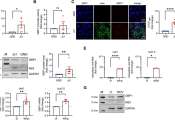2 win medicine Nobel for showing how we react to heat, touch
Two scientists won the Nobel Prize in medicine on Monday for their discoveries into how the human body perceives temperature and touch, revelations that could lead to new ways of treating pain or even heart disease.
Oct 4, 2021
0
72









